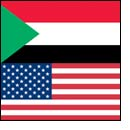US urges Sudan to reverse aid worker expulsions, decries rebel violence
 WASHINGTON, Nov 29 (AFP) — The United States called on Sudan’s government to reverse its decision to expel the heads of two British aid agencies and called on both Khartoum and rebel groups to stop attacks in the country’s troubled western Darfur region.
WASHINGTON, Nov 29 (AFP) — The United States called on Sudan’s government to reverse its decision to expel the heads of two British aid agencies and called on both Khartoum and rebel groups to stop attacks in the country’s troubled western Darfur region.
The State Department said it was troubled by expulsion orders issued to the Sudan country chiefs of Oxfam and Save the Children and added that Washington would join Britain, the United Nations and others in appealing for the government to rescind the step.
“We are very concerned about the situation,” spokesman Richard Boucher said. “These two non-governmental organizations have played, we think, an important role in helping alleviate the suffering of the people of Sudan, especially in Darfur.”
“There are contacts at various levels of the United Nations operating in Sudan with Sudanese authorities to press Sudan government to reverse these decisions … and that is something that we will continue to press as well,” he told reporters.
Earlier Monday, Khartoum ordered the expulsions and set a 48-hour deadline for the two aid chiefs to leave the country after accusing them of meddling in Sudan’s internal politics.
The decision was announced in a letter sent to the aid groups by Sudan’s acting humanitarian aid commissioner general, who said the pair had “exceeded the limits of humanitarian work and the laws of the country,” which state that “humanitarian work must be far from political objectives.”
Both Oxfam and Save the Children have been active providing humanitarian assistance to thousands in Darfur, and the move came as aid agencies warned that deteriorating security conditions could worsen the plight of more than 1.6 million displaced persons there.
Boucher also decried Khartoum’s failure to live up to pledges to allow assistance to get into Darfur as well as ongoing violence by both sides but singled out the rebel Sudan Liberation Movement/Army (SLM/A) for particular criticism for violating a fragile April cease-fire signed.
“There’s been an escalation of violence instigated by the Sudan Liberation Movement and Army,” Boucher said. “It’s illegal, inhumane, clearly detrimental and counterproductive for the Sudanese people.
“So our message to them is also that, if they want to engage the international community, they’re going to have to adhere to agreements that they’ve signed,” he said.
International humanitarian agencies have in recent weeks blamed government forces and rebels in the region for an escalation of the 21-month conflict, which has left tens of thousands dead.
The surge in the fighting, despite the signing in November of a security and humanitarian protocol by the warring sides, shocked aid agencies into fleeing the region, leaving hundreds of thousands of people without food.
North Darfur, in particular, has been the scene of some of the fiercest battles between government-allied Arab Janjaweed militias and ethnic minority rebels, especially the SLM/A.
The SLA captured the town of Tawila in North Darfur on November 22, disrupting a shipment of 235 tonnes of food bound for there and another town which are now cut off from essential food supplies, aid agencies said.
